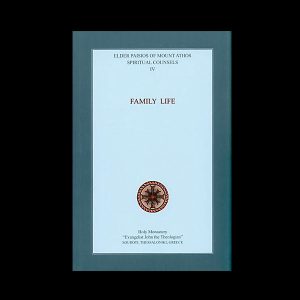Thirty Steps to Heaven by Archimandrite Vassilios (Papavassiliou)
Many lay people have attempted to read the great spiritual classic, The Ladder of Divine Ascent,
but have been frustrated in attempting to apply the lessons of this monastic text to their everyday lives in the world.
Archimandrite Vassilios interprets the monastic text for the laity while retaining its spiritual beauty and powerful messages, to assist people in ascending closer to God.
Paperback, 250 pages
From the text:
Step 10: Slander
Malice and the remembrance of wrongs naturally lead to gossip and slander. How often have I heard Christians, myself included, go on for years criticizing before others what someone once said or did, without any consideration that the object of their slander or derision has long since repented and been forgiven by God. What a shameful sin this is! God, who alone has authority to forgive sins, who alone is without sin, does not hold the sins of the penitent against them, yet we sinners refuse to forgive. Thus St. John writes: To pass judgment on another is to usurp shamelessly a prerogative of God, and to condemn is to ruin one’s soul. No doubt St. John had in mind the words of St. Paul: “Who are you to judge another’s servant? To his own master he stands or falls” (Rom. 14:4).
To pass judgment is to usurp shamelessly a prerogative of God because only someone without sin has any right to pass judgment. Thus with these simple words the Lord shamed those who were ready to stone an adulteress: “He who is without sin among you, let him throw a stone at her first” (John 8:7). Note that He did not say, “He who has never committed adultery,” but “he who is without sin.” There may be sins we have not committed and we got on our moral high horse and condemn others because they commit a specific kind of sin that we have not.
We Christians are often guilty of this sort of discrimination. We may say, “I am a sinner” but often what we really mean is, “I am a sinner, but not like that person!” “I am a sinner, but I don’t commit that sin!” We accept “normal” sins and are only outraged by “abnormal” sins. And by what right, and on what basis, have we decided that one person’s weakness is more worthy of condemnation than our own? And for what reason do we consider spiritual sins such as pride, hypocrisy, hatred, and slander less grievous than “physical’ sins? A chaste virgin can be more defiled in God’s eyes than an adulteress or a prostitute:
There are girls who flaunt their shamelessness, but there are others who are much worse, for they put on the appearance of great modesty while secretly engaging in abominable behavior. So it is with shameful vices. And indeed there are numerous insincere maidens: hypocrisy, cunning, melancholy, brooding over past injuries, secret contempt for others. They put on a show of doing one thing – then act otherwise.





